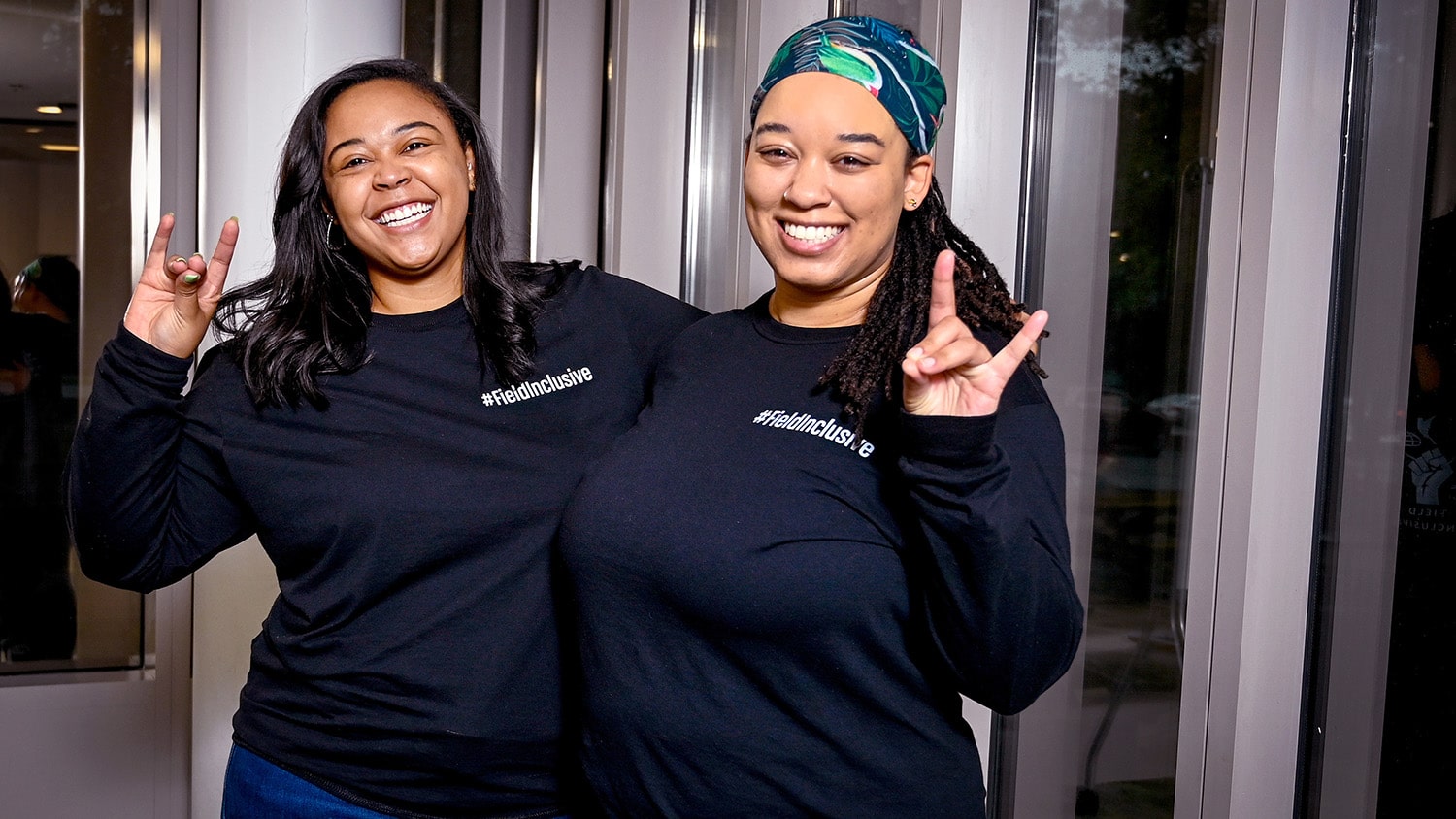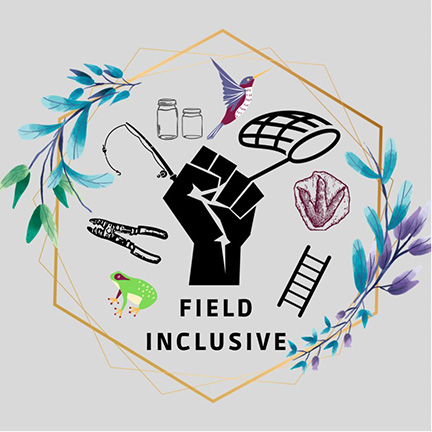Seen in Science
Students start a nonprofit to address concerns of researchers from marginalized communities.

Co-founders of Field Inclusive Lauren Pharr ’21 MS (left) and Murry Burgess (right).
Urban ecologist Murry Burgess studies how factors like light and sound affect songbird nestlings. She can take pretty much anything — from bad weather to snakes — the elements throw at her.
But as a Black researcher, she says her training didn’t prepare her for one element. “People are unpredictable.” says Burgess, a fisheries, wildlife and conservation Ph.D. candidate.
That unpredictability was the driving force in August 2022, when Burgess partnered with Lauren Pharr ’21 MS, an avian ecologist and Ph.D. student, to start Field Inclusive. It’s a nonprofit supporting issues of social field safety, defined as the interpersonal interactions between researchers and people they may encounter in the field or members of their team.
The duo says Field Inclusive grew out of talking with others from historically excluded communities, including people of color, the LGBTQ+ community, the disabled and those who’ve felt excluded based on gender. “We all have the same stories of feeling uncomfortable in situations, having uncomfortable interactions and having the police called on you,” says Burgess, whose research has carried her into rural North Carolina on unfamiliar roads peppered with Confederate flags.

FIELDING ADVICE
Here are recommendations from Field Inclusive, which can help any researcher in the field:
Once you know where your field site is, go to that area’s local law enforcement and introduce yourself and the research project.
Go to towns adjacent to your site and post flyers about the research you’re conducting.
Have your institution produce a car magnet and a badge to formally identify you. Murry Burgess worked with the College of Natural Resources in 2022 to develop an “NC State College of Natural Resources” car magnet she and others use.
Field Inclusive hopes to educate professors who run research programs about possible issues and encourage them to have guidelines in place. Pharr’s research on the red-cockaded woodpecker takes her to property about 45 minutes from Fort Liberty on land where people can hunt, fish and bike. Luckily, she says, people in her program told her to not be alarmed if she saw someone come out of the woods with a rifle. But, she says, that doesn’t happen everywhere.
Field Inclusive has attracted partners and sponsors including Cape Fear Bird Observatory, the College of Natural Resources, Wake Audubon, Sea Grant North Carolina, the Nature Conservancy and Wilson Ornithological Society. The group has doled out fellowships and research grants (their favorite so far provides a researcher in Ecuador studying endangered harlequin frogs $500 to pay to indigenous people aiding her), and they are preparing templates and online modules outlining social field safety standards.
“We want to make a change,” Pharr says. “Having these partnerships and organizations come to talk and join us allows them to think about social field safety and how they can incorporate it within their organization or program.”


